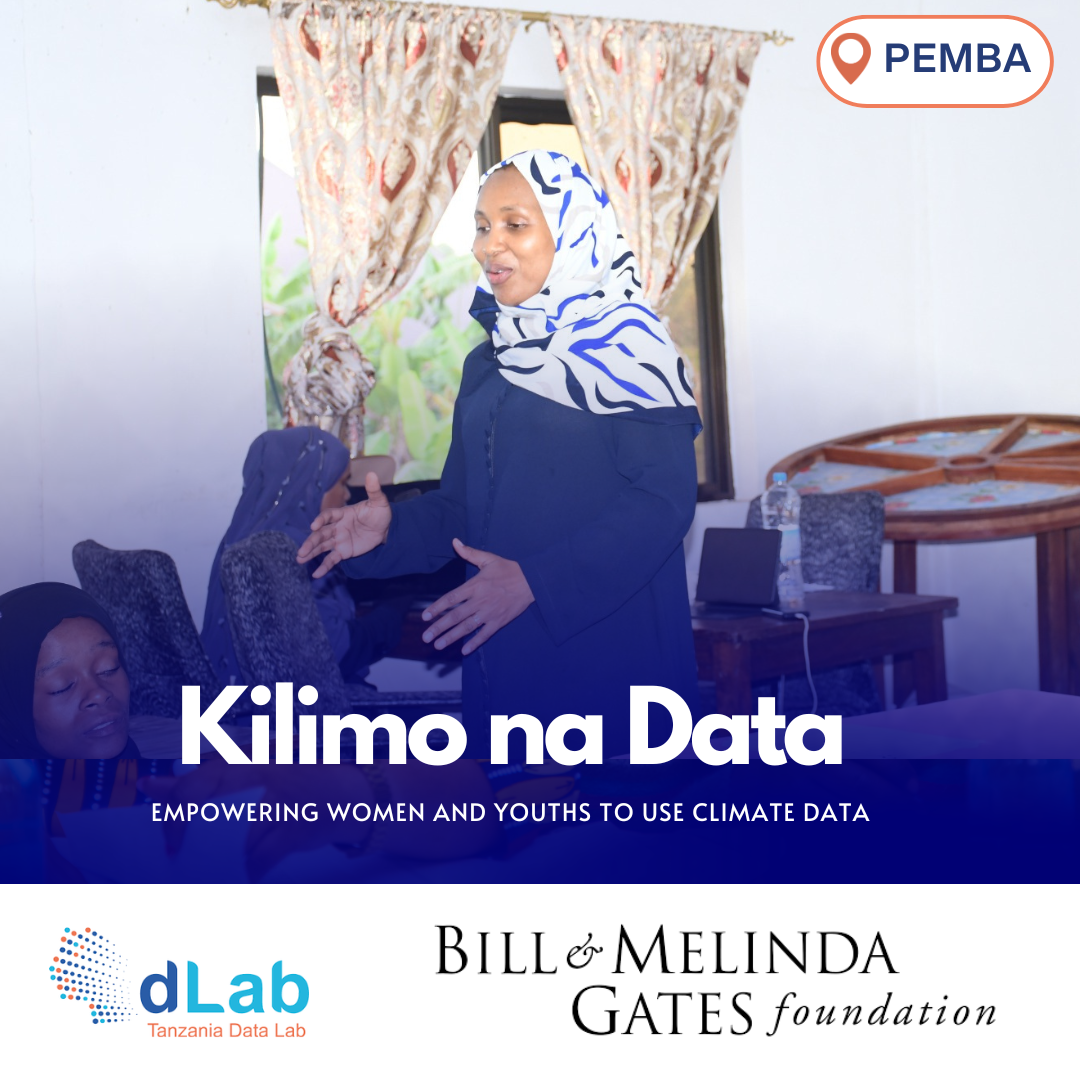
Building Climate Resilience in Pemba: Farmers Turn Data into Action
19th–21st January 2025 | Pemba, Tanzania
Pemba’s rolling green hills and fertile farmlands are known for their cloves, bananas, and cassava. Yet, as climate patterns shift, these same landscapes are facing new challenges. From unpredictable rainfall to rising sea levels, the island’s farmers are at the frontlines of climate change — and ready to act.
Earlier this year, we hosted a three-day Climate and Agribusiness Training in Pemba, bringing together 42 participants (31 women and 11 men), including farmers, MSMEs, and extension officers. The training aimed to strengthen local understanding of weather, climate, and climate-smart agribusiness practices — turning knowledge into real, actionable resilience.
Day 1: Understanding Weather, Data, and Local Realities
The training was officially opened by Eng. Idriss Hassan Abdullah, Afisa Mdhamin Pemba (Permanent Secretary, Ministry of Agriculture). Setting the tone for the event, he emphasized the role of data-driven agriculture in safeguarding Pemba’s future.
The opening session was led by Mr. Suleiman Ali Juma, Senior Meteorological Officer from TMA Pemba, who guided participants through the fundamentals of weather and climate. He explained how variations in rainfall can directly affect local crops such as cassava and bananas — sometimes causing rotting or poor yields when rains exceed normal levels.
“This year, the rains were above average, and some crops like cassava could not survive,” explained Mr. Suleiman. “Farmers need to work closely with extension officers to interpret forecasts before planting.”
While weather data in Pemba is readily available through the Tanzania Meteorological Authority (TMA) website, access remains a challenge. Many farmers lack smartphones or internet connectivity. Others mentioned that they previously received weather updates via WhatsApp groups — a service that stopped when project funding ended.
Interestingly, compared to Dodoma, Pemba’s data accessibility is far better. Yet, trust in forecasts remains low, with many farmers preferring traditional weather indicators over digital tools. This revealed an important gap: access is not enough — awareness and trust must follow.
Day 2: Connecting Climate Change to Everyday Lives
Day two opened with a lively recap of weather and climate concepts — and the consensus that Pemba’s climate is “wet and humid.” The session then delved deeper into climate change causes, impacts, and adaptation.
Participants identified local drivers of climate change, including deforestation for charcoal production and excessive stone quarrying, both of which accelerate erosion and environmental degradation.
“Tree cutting in some parts of Pemba is fueling coastal erosion. Ocean water is now covering parts of farmlands and submerging homes,” shared one participant.
Discussions on climate change effects highlighted reduced productivity, unpredictable rainfall, rising sea levels, flooding, loss of biodiversity, and increased pest outbreaks. Fishermen noted that warming ocean temperatures are affecting fish availability, while farmers reported cassava and legume crops suffering from erratic rain patterns.
In group sessions, participants explored:
- How climate shifts affect crops, livestock, and fisheries
- What local adaptation practices already exist
- The role of government, NGOs, and youth in promoting resilience
Farmers also shared ongoing adaptation efforts — from mangrove replanting and water harvesting to constructing coastal barriers and using boreholes. Participants urged the government to strengthen extension services, promote clean energy, and support youth-driven innovations in agriculture.
Day 3: From Knowledge to Climate-Smart Agribusiness
The final day focused on translating learning into practical business ideas. Participants worked in groups to design climate-smart agribusiness models based on upcoming weather forecasts that predicted delayed rains and possible flooding.
Each group presented their adaptation plan:
- Group 1: Focused on spinach farming, a fast-growing crop that can generate quick income. They proposed a door-to-door sales model and value addition through drying and roasting spinach to reduce post-harvest losses.
- Group 2: Chose banana farming, particularly the mkono wa tembo (Horn banana) variety. With guidance from extension officers, they adopted climate-smart planting techniques and discussed intercropping to improve soil fertility.
- Group 3: Proposed cassava and sweet potato farming, emphasizing drought resilience and techniques to reduce stem rot during heavy rains. They also introduced value addition ideas such as processing cassava into flour, crisps, and porridge.
- Group 4: Presented under the theme “No Agriculture and Data Without Peace,” highlighting how stability is essential for farming and innovation. Their plan integrated data use, collaboration with extension officers, and community mobilization for knowledge sharing.
“Peace is the foundation for both farming and innovation,” one participant noted, linking political stability with agricultural resilience.
Across all groups, value addition and sustainability emerged as recurring themes. Farmers recognized that processing crops into longer-lasting products not only reduces waste but also boosts household income. Many also embraced organic farming, relying on manure and locally available tools to maintain affordability and soil fertility.
Building Support Networks for Lasting Change
The Pemba training reaffirmed that data alone doesn’t drive resilience — people do. When communities understand, trust, and act on information, technology becomes a tool for empowerment rather than exclusion.
By linking farmers directly to extension officers, encouraging local innovation, and promoting collaboration, Pemba is setting a strong example of how climate resilience can start at the grassroots level — with knowledge, cooperation, and the right networks.
“Together, we’re restoring trust, encouraging collaboration, and giving MSMEs and farmers the confidence to make better adaptive decisions in the face of climate change,” said one extension officer at the close of the session.